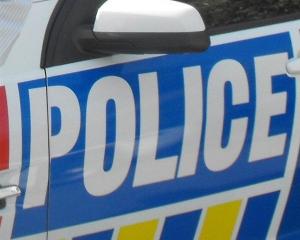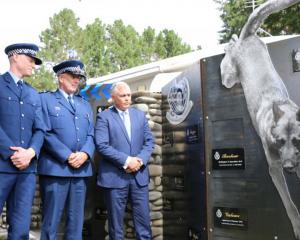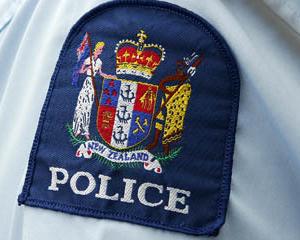
Since 2004 the number of violent crimes recorded by police south of the Waitaki River has increased by 37%, from 3181 cases to 4359 last year.
The numbers once again showed recorded violent incidents were on the rise across the country, with police again putting increases down to continued increased reporting of family violence, and the effects of targeted education programmes and police operations.
The latest figures showed that nationally, violence and drug-related offences were largely responsible for increased crime rates.
There was a 4.6% increase in recorded crime in 2009, with 451,405 offences recorded last year compared to 431,383 in 2008.
In total, the number of criminal offences recorded by southern police last year (28,601) was 0.3% lower than what was recorded in 2004.
Also the proportion of the offending which fell in the violent category last year was 15% of the total offending, while it was only 11% of total offending in 2004.
Recorded violent offending, which includes serious and minor assaults, intimidation and threats, homicide, robbery and kidnapping, had increased dramatically in all three police areas in the Southern District since 2004.
Southland area police reported the largest increase, with 65% more violent crimes recorded in 2009 (1485) than in 2004 (898).
Over the same period the number of recorded violent offences in the Dunedin-Clutha police area rose 27% from 1597 to 2020, and in the Otago Rural police area they rose 25% from 686 to 854.
Southern police district commander Superintendent Bob Burns said increased reporting of family violence, due to media campaigns and a stronger police focus on the issue, was impacting on the amount of violent crimes recorded.
The increase in the Southern District was not unusual, he said. In some areas of New Zealand the number of recorded violent offences had tripled as a result.
He noted Southern's 2009 numbers also showed decreases in public-place violence in most parts of the district compared to 2008, including 9% fewer incidents of street violence in the Dunedin-Clutha police area.
"Unfortunately, the statistics give a wrong perception that [the South's] not a safe place, when what they really show is that it's [statistically, on average] safer to be in the street than in your own home. That's the truth, and I think people need to be shocked by that."
But people also needed to remember that the Southern police district recorded the lowest number of offences per head of population, of anywhere in the country, and had one of the highest crime resolution rates.
Fifty-two percent of recorded crimes in the Southern police district were resolved in 2009, well above the national average of 47.8%.
Year-on-year total recorded crime was down across the southern police district, with 106, or 0.3%, fewer crimes recorded in the 2009 than in 2008.
Crimes that increased included violent offending (up 4.6% to 4359 offences), drug and antisocial crimes (up 7.6% to 5273 offences) and sexual crimes (up 22% to 301 offences).
The number of dishonesty offences, property damage, property abuse and administrative crimes were all down in 2009, compared with the previous year.
Total crime recorded last year compared with 2008 was down 0.3% in the Dunedin-Clutha police area; down 4% in Southland and up 5% in Otago Rural, which includes Queenstown, Waitaki and Central Otago.
Otago Rural area commander, Inspector Mike Cook said the increase in recorded crime in his area was driven by drug and antisocial offending, which were two areas local police were specifically targeting in 2009.
A significant increase in property damage was driven almost single-handedly by a new reporting arrangement with the Waitaki District Council.
The increase in violent offending in Southland was driven entirely by an 18% increase in recorded family violence, said Southland area commander, Inspector Barry Taylor.
There was a 6% increase in drugs and antisocial offences. The largest increase within the category was for cannabis offences, which increased by 23% from 514 offences in 2008 to 630 offences in 2009.
These increases were offset by a 32% drop in alcohol offences, from 232 recorded offences in 2008 to 159 last year. Cannabis is the most widely used illegal drug in the Dunedin-Clutha area and there has been increased attention from police, with the main emphasis on targeting dealers and growers.
In Dunedin-Clutha area commander Inspector Dave Campbell said there were increases in car conversion (66 more offences), burglary (33 more) and theft (29 more). A 5% decrease in property damage offences was driven entirely by local community constables being tasked with reducing wilful damage in their patches.
Police Minister Judith Collins said the figures showed the scale of the problem New Zealand faced with the section of the community that had no respect for the law.
In areas where the Government had concentrated resources and police were trialling new approaches to policing, crime statistics were starting to show improvement, she said.










